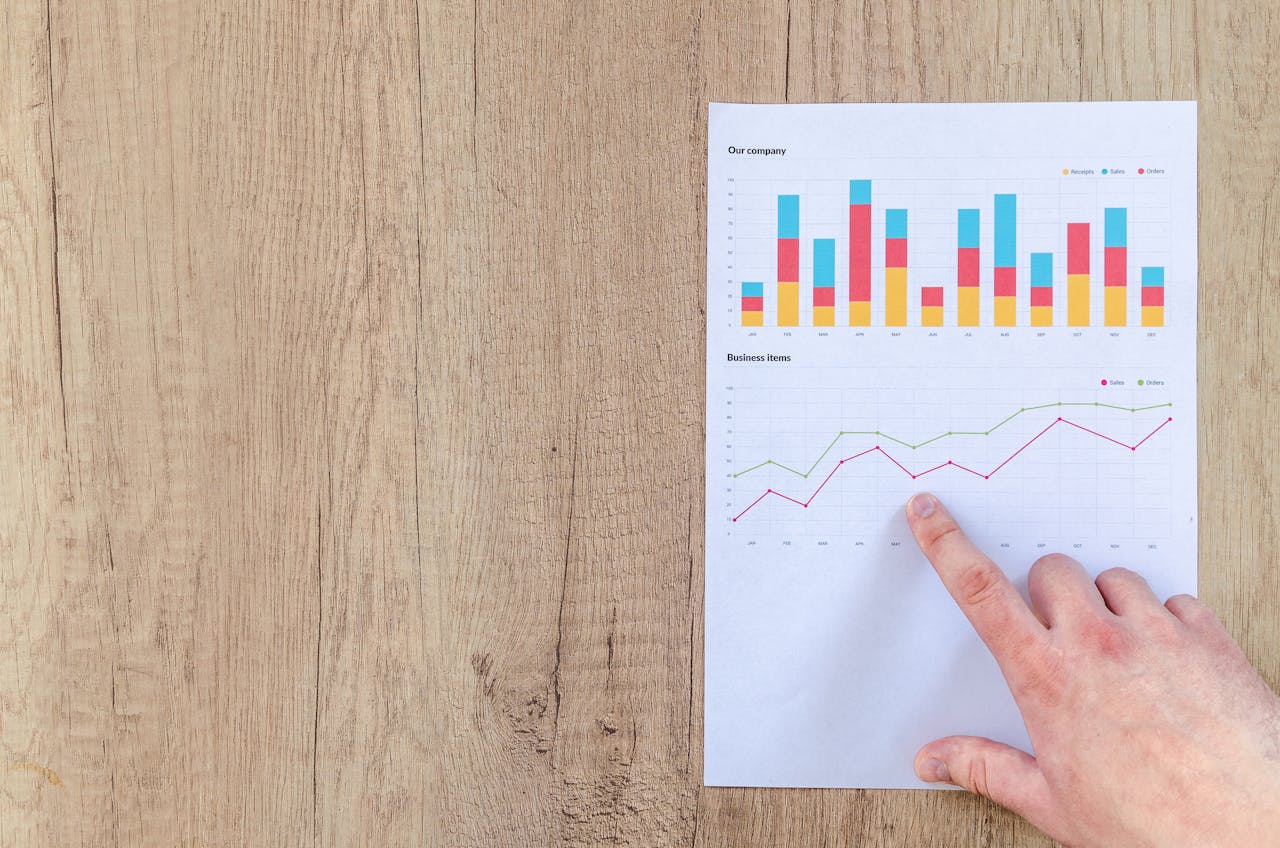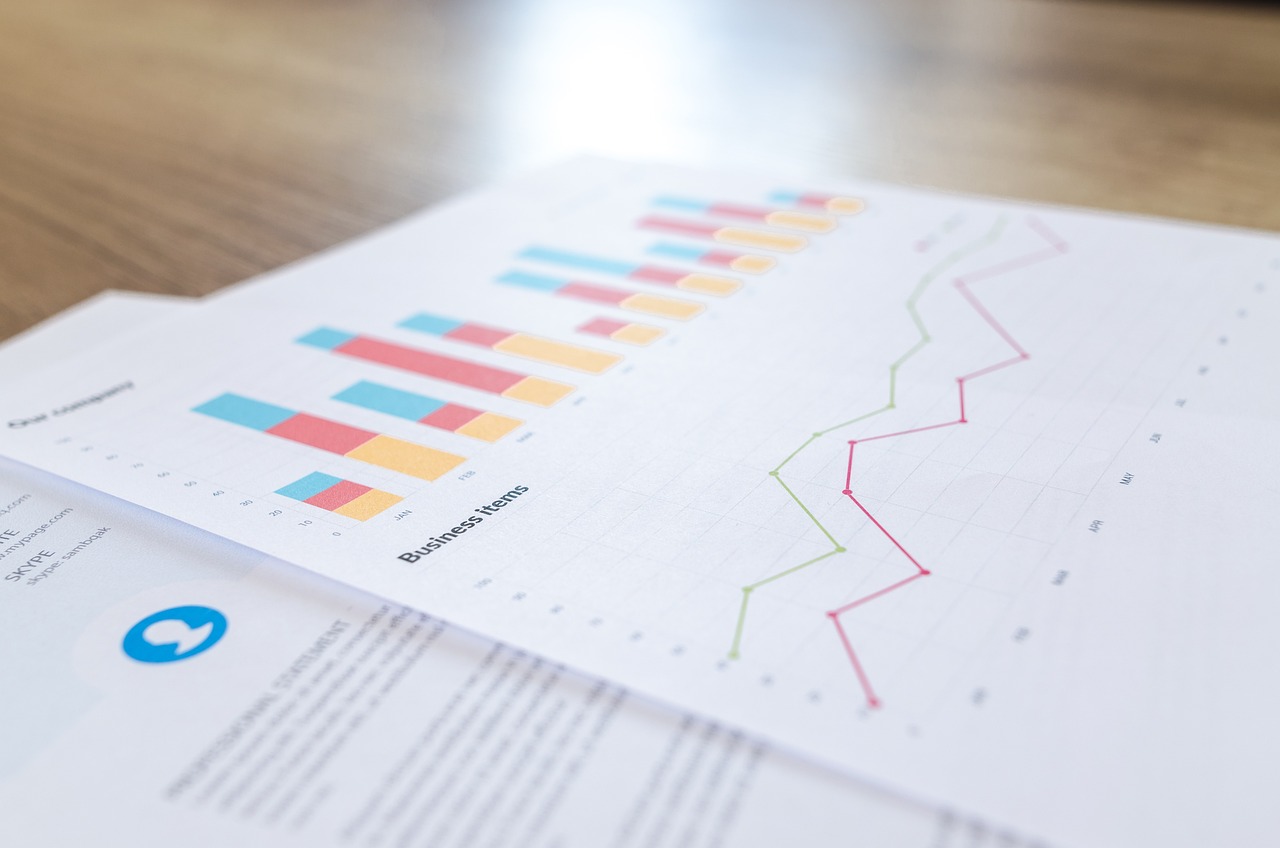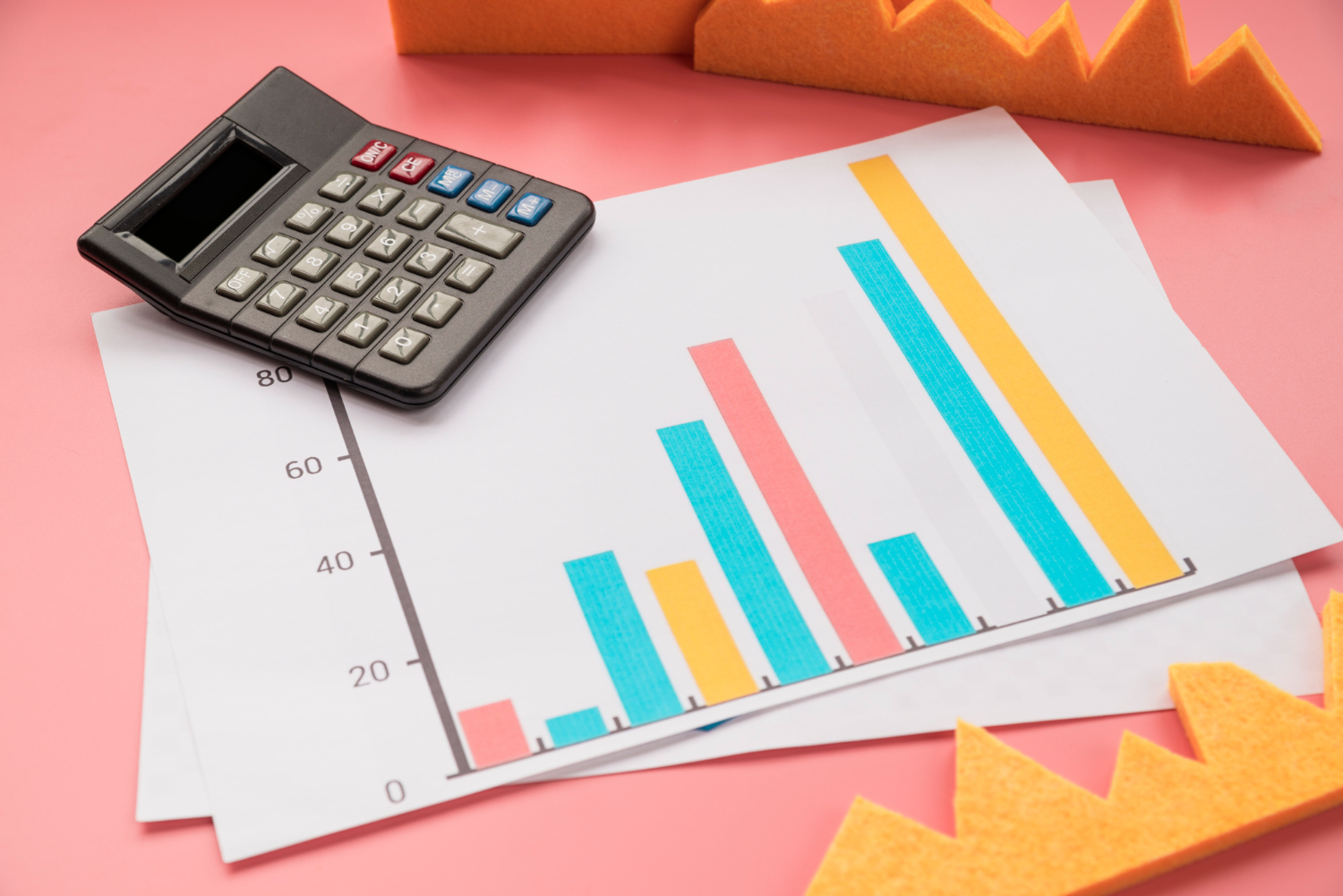

Here at Brixx, we feel the need to convey the importance of forecasting in business. Whether you are looking to start, grow, or exit your business, there are a number of different types of forecasts that can help you more easily reach your goals.
In this post, we’ll briefly cover the types of commonly found business forecasts and why forecasting is so crucial for your business. As a financial modelling tool, Brixx can assist you in many of your forecasting endeavours.
You might also be interested in our recent write-up:
- How to Use ChatGPT for Financial Forecasting and Planning
- 6 Ways Financial Forecasting Isn’t What You Think It Is
Let’s talk about the importance of forecasting to start, grow, or exit your business
- The importance of forecasting in business for different needs
- Understanding the importance of forecasting methods vs forecasting types
- What is the importance of forecasting?
- Understanding how the importance of forecasting can benefit your business
- What can an effective financial forecast do for your business?
- Focusing on the importance of forecasting tools
As a financial modelling tool, Brixx can help create effective financial forecasts to help your business. This is why we’ll briefly touch on the different types of forecasts before focusing our attention on the financial side of life.
The importance of forecasting in business for different needs
The economic situation of a business can be estimated using several different metrics. Forecasting is a way to analyse past and present data in order to generate answers. There are a lot of different ways to forecast data for your company. Each type of business forecast focuses on one specific metric or outcome. You need to decide which type of forecast you want to pursue before deciding what to predict.
Business forecasts can range from general to specific. For example, you can generally forecast the next sales month or more specifically forecast consumer demands for seasonal events.
Here is a shortlist of the six most common types of business forecasts you will encounter:
- General business forecasting
- Financial forecasting
- Accounting forecasting
- Demand forecasting
- Sales forecasting
- Capital forecasting
What is general business forecasting?
Business forecasting is when companies utilise a range of tools and techniques to predict changes in the business. These could be changes in sales, expenditures, profits and losses.
This type of forecasting can help businesses develop better strategies based on these informed predictions. This will help eliminate potential failures or losses well in advance. A general business forecast is used to determine the overall business climate for a future date and can be applied to many company and industry types.
What is financial forecasting?
Financial forecasting is a financial plan that estimates the projected income and projected expenses of a business, and a solid financial forecast contains both macroeconomic factors and conditions that are specific to the organisation. A comprehensive forecast includes short- and long-term outlooks on conditions that could impact revenues and contingencies for expenditures not currently viewed as necessary. While not limited to this, these are the general outlooks one will find on a thorough forecast. Financial forecasting is about getting a clear picture of your company’s future. It includes weighing financials such as assets and liabilities, accounts payable and accounts receivable, operating costs, capital structure and cash flow, and general market conditions.
What is accounting forecasting?
An accounting forecast is using past and present data to predict future costs to be incurred by the company. By using past and present data, you can estimate how much your business will pay for costs like raw materials, inventory, utilities, insurance, and more.
What is demand forecasting?
A demand forecast goes hand in hand with a sales forecast as they help predict what the market needs or wants and how your business will be able to capitalise on those needs with sales.
What is sales forecasting?
A sales forecast helps businesses estimate potential future sales. It also allows your business to anticipate its future needs such as workforce, resources, cash flow, inventory, and investment capital. A sales forecast will show the sales revenue that you might expect over a specific future time frame.
What is capital forecasting?
While not as reliable as other forecasts, a capital forecast is based on current and future assets and liabilities. Capital forecasts also contain predictions for liquid capital and cash flow, however, their lower reliability rates are simply because it involves guessing most of the data.
Capital may involve the following:
- Cash and savings
- Assets
- Accounts receivable
- Revenue
- Investment funding
- Lines of credit
Understanding the importance of forecasting methods vs forecasting types
When looking at forecasting types, they help identify the target you’re pursuing. Whereas a forecasting method is how you gather and identify that information and data. A forecasting target could be a sales forecast, cash flow model, etc, for example. Whereas a forecasting method would be the way that data is assessed (qualitative vs. quantitative, for example).
The common approaches to forecasting methods
There are several forecasting techniques, the data you use to compose your forecast falls within two general categories. These are quantitative and qualitative. Depending on the available data and the age of your business, one approach will be more beneficial than the other.
Quantitative forecasting focuses on structured data, statistical analysis, and experiments – for example, the average customer churn rate in your sector, industry, or even better, past performance in your own business. Qualitative forecasting uses unstructured data. This is because it relies on interviews, surveys, and observations.
There are a number of reasons why you might use one over another, and depending on your business type and goals, it will be up to you to decide on the best one for your needs.
What is the importance of forecasting?
Forecasting allows your company to become proactive in directing its future. By aggregating and analysing past data, predictions can be made about future trends and changes. While possible to create forecasts without any historical data, being able to add in as many details as possible will make forecasts more accurate.
You may be questioning the importance of forecasting in business, which is why you’ve decided to read this post. Well, simply put, financial forecasts are an essential part of business planning, budgeting, operations, and funding. Forecasts enable stakeholders to make better choices to inform on financial and operational decisions, based on current market conditions and how they may look in the future.
Forecasting will allow you to make financial decisions such as whether to fund a capital project, undertake a staffing increase or seek funding. It will also serve as an estimate of future financial outcomes for a company, and it’s an integral part of the annual budget process.
The insights gained from this will be crucial moving forward. They will determine whether your company’s current strategy is future-proof. A timely forecast provides a clear idea of whether or not you will require to pull funds for continuity. In determining whether you need to pivot, forecasts can yield valuable insight into mapping out new strategies that your business could use to survive. A projection provides a better perspective for financial decision making as it provides valuable insight based on how current decisions can impact future outcomes.
Understanding how the importance of forecasting can benefit your business
We’ve listed three of the top benefits that forecasting can have on your business, other than helping you develop your business plan or seek funding.
Forecasting helps to set goals and plan ahead
Having accurate data and statistics to analyse helps businesses to decide what amount of change, growth or improvement will be determined as a success. By having these goals, companies can better evaluate progress. It allows them to adapt business processes where needed to continue on the desired path. With the aid of certain tools such as CRM, forecasting software, etc. businesses can better visualise forecasts and make decisions based on insight.
A forecast helps businesses budget
While a budget quantifies the expectation of revenues that a business wants to achieve over a period, a forecast is different. Forecasts allow you to estimate the amount of revenue or income that is expected in a future period. Using a forecast when budgeting helps turn information into meaningful insights to make for a better allocated and estimated budget.

Forecasts help anticipate change within the market
By having insight into not only current data but projections of what could happen in the future, businesses can make better adjustments. Forecasts help businesses optimise their strategies and alter their current operations to change potential outcomes. Regular forecasting allows companies to readjust to the market overall and optimise resources to stand out from the competition.
What can an effective financial forecast do for your business?
While many still believe that financial forecasting is better suited to bigger businesses, that is not the case. Financial forecasting is crucial to small businesses too. There’s no doubt that big businesses – with larger funding – are more faithful disciples of forecasting than small businesses.
No matter your company’s size or industry, financial forecasting in business can:
- Serve as the foundation for budgeting decisions due to data-driven insights
- Show that your organisation has a plan and is prepared for unforeseen events that may impact revenues and budgets
- Help measure the effects of making material financial decisions
- Prepare a company for the best and worst-case scenarios
- Establish control and raise awareness of a broad range of variables that can have short- and long-term impacts
- Keep decision-makers aware of potential events that could impact performance
- Prepare companies for increases or decreases in demand
Focusing on the importance of forecasting tools
Business forecasting software is readily available in today’s modern age. While templates and spreadsheets may seem more familiar, specialised tools are often more effective.
Whether you want to stick to formulaic forecasts or conduct a broader outreach with qualitative forecasting, you need somewhere to store, track, and analyse your data and results with ease. There are several solid reasons why you should be using forecasting tools, such as predicting the future or planning for unknowns.
Forecasting tools can help you more easily:
- Grasp in-house data and business performance
- Provide a competitive advantage
- Set and enforce effective budgets
- Create a faster response to seasonal changes
- Identify larger patterns and relationships
- Assist in long-term strategy and planning
We can’t predict the future, but forecasting helps us understand our company’s financial state and remain agile in a changing market. At the very least, forecasting forces you to know your own company and gather your own data—making you a smarter and better-informed business owner.













